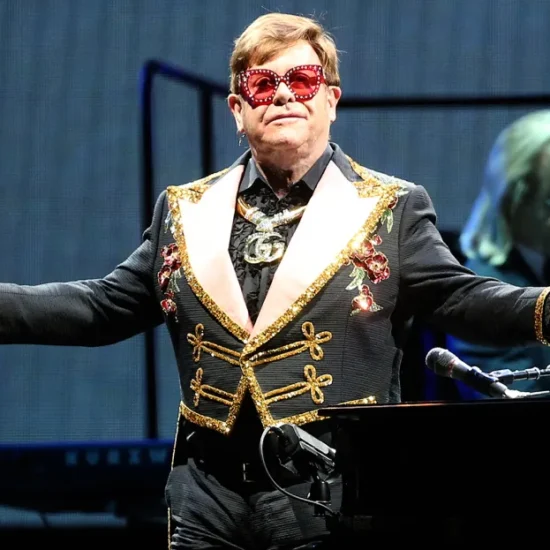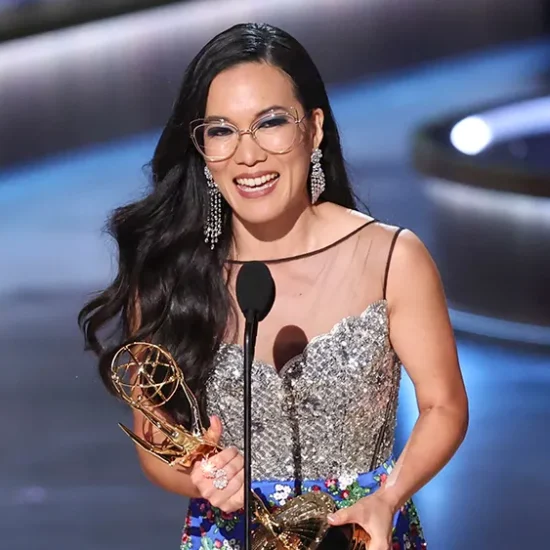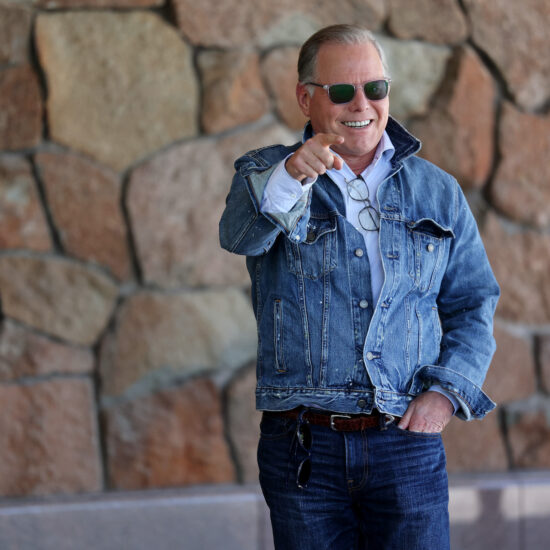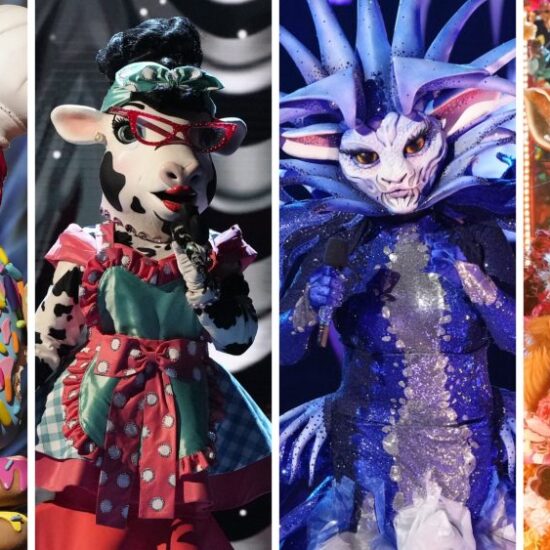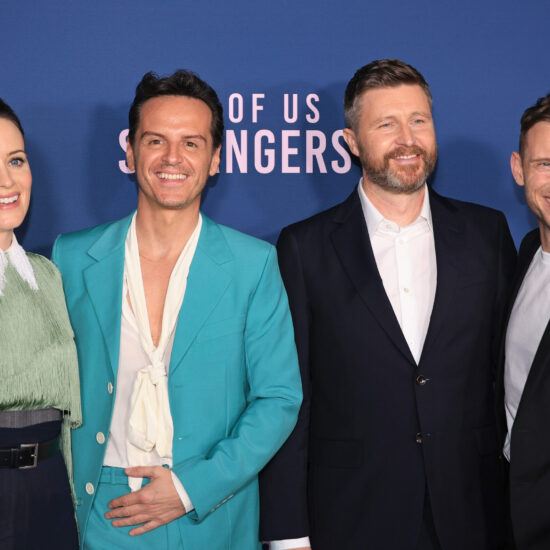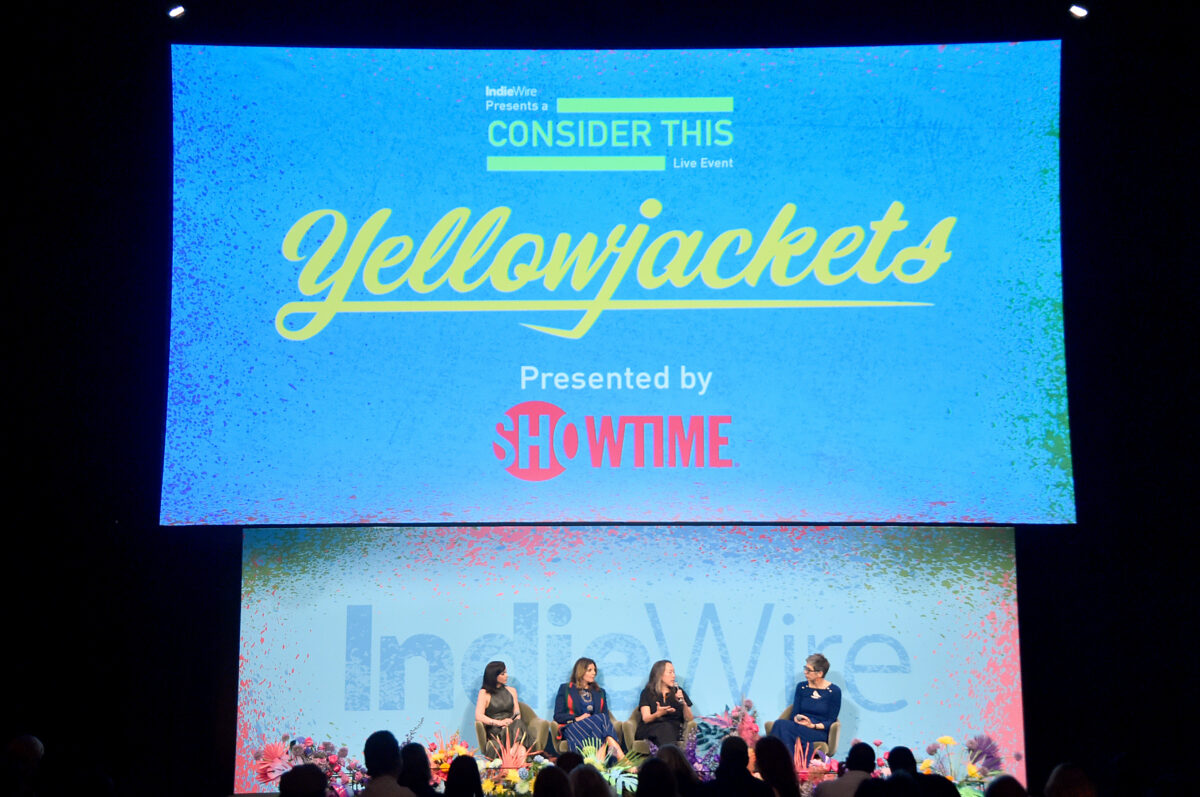
In the first episode of “Wednesday,” Jenna Ortega’s title character plays a cello cover of The Rolling Stones’ goth anthem “Paint It Black.” Pulling off such a scene required licensing the song, orchestrating a new arrangement of it, and teaching Ortega how to play it — all while the traditional scoring process was taking place. It’s a fusion of old and new that helped make the show a cultural phenomenon when it debuted on Netflix in November 2022. And while the production team might have made it look easy, it required intense coordination between multiple departments.
That type of collaboration was a recurring theme to be celebrated at IndieWire’s Consider This Event on Saturday June 3. IndieWire hosted nearly 200 TV Academy, guild members, and other industry in attendance for a packed event at NeueHouse Hollywood that included a welcome reception, buffet lunch, items raffled by Rabbit Hole whiskey, Stanley cupware, and a Dell computer followed by a cocktail reception. Our editors moderated four panels featuring the artists behind Starz’s “P-Valley,” Paramount+’s “Grease: Rise of the Pink Ladies,” Netflix’s “Stranger Things,” “Beef,” and “Wednesday,” and Showtime’s “Yellowjackets.” There will be video content and more on IndieWire’s social feeds in the days ahead.
But despite the wide range of genres that were represented in the event, panelists from every series returned to the theme of departments going above and beyond their job descriptions to perfect the details of our favorite shows.
“For ‘Wednesday’ we came on super early, because in the first episode we had the on-camera cello performance of ‘Paint it Black.’ So we had to get that created and really dial in,” music supervisor Jen Malone said. “We also had to get it to Jenna in time so that she could learn it — which she did phenomenal with.”
While Malone was coordinating with Ortega, composer Danny Elfman and co-composer Chris Bacon were busy writing the music for the rest of the series. Director Tim Burton brought his lifelong collaborator Elfman in to score the episodes that he directed, while Bacon worked concurrently to compose music for the remaining episodes. The music that eventually emerged from “Wednesday” was a combination of the two men’s ideas, but they never worked side-by-side.
“It’s funny because Chris and I shared responsibilities, but our experiences were completely different. Chris was more in the traditional lane, working with the showrunners on the four episodes he did. And I was working exclusively with Tim, because when I’m working with Tim he just likes to keep a closed circle. Like a tank that nobody’s allowed in,” Elfman said. “I also got involved very early, because Tim didn’t know for sure what the tone was gonna be. It just involved lot of experimenting and finding out what is ‘Wednesday’ musically. And Tim doesn’t like to be rushed. So I came on early, did a lot of ideas, and finally honed it down to ‘this feels like Wednesday.’”
“Beef” composer Bobby Krlic explained that creator Lee Sung Jin afforded him a level of access to his hit Netflix series that composers rarely get. Being able to read scripts and watch rehearsals before anything was filmed allowed him to grasp the show’s tone earlier and make bolder musical choices as a result.
“Sung invited me to the first table read that the cast and everybody had. It was really nice of him to do that, because composers don’t normally get to do that,” Krlic said. “So I got to see the pacing and the dialogue and just hear all the workshopping that everyone was doing. I think I literally drove my car 100 miles an hour, I couldn’t wait to get back to the studio. And instead of thinking about score, I just started writing songs. I wanted to write songs for a band, so what I played originally was just guitar, bass, drums. And I sent them just four or five songs that ended up being cut up into the theme of the show. This was really a project for me where everything I’ve worked on in my life so far just came full circle.”
Over the course of its massively popular first four seasons, “Stranger Things” has gradually expanded into a science-fiction epic with one of the largest budgets on television. As the show has gotten bigger, so has the soundscapes. Re-recording mixer and supervising sound editor Craig Henighan explained that he continues to employ the same open-minded approach that he used in Season 1, but the large scale of the show now forces him to observe other departments much more closely.
“It’s a lot of experimenting. It’s a lot of trial and error. Dynamics are a big thing. It’s just figuring out what the scene needs,” Henighan said before explaining the way his work is constantly being shaped by sound artists in other departments. “Seeing what Michael (Dixon) and Kyle (Stein) are doing with the score and seeing if I need to grind against it or actually flow into it. But it’s just a lot of trial and error. I’m very fortunate to get a lot of the episodes early.”
Making an Emmy-worthy TV show is challenging enough as it is, but adding musical numbers makes things infinitely more complicated. Fortunately, the entire creative team behind “Grease: Rise of the Pink Ladies” was up for the challenge. Appearing on a panel moderated by IndieWire’s Marcus Jones, the show’s choreographer Jamal Sims explained that the show’s camera team went above and beyond to make sure they could capture the dazzling numbers properly.
“We had amazing directors of photography, DJ Stipsen and Mark Chow. And what was great about working with them was they would love to come to our rehearsals. Which is so important on a movie musical, because you want to know where the dancers are, where do we need the cameras, how can we hide the cameras, all of this stuff,” Sims said. “A lot of DPs say ‘I’ll just see it when I get there,’ but they would actually come to the rehearsal and we would walk them through. As far as choreography, I would film a pre-vis prior to, just to show what the best angles of the dance are. Then our directors would come in and they could choose to use it or not. But at least we were giving the dancers a chance to be seen, because you can miss a dance just by putting the camera too low or too high.”
Karyn Kusama continued the dialogue about collaborations between departments when she explained her role as an executive producer on “Yellowjackets” on a panel moderated by IndieWire’s Dana Harris-Bridson. She famously directed two of the show’s most important episodes — the pilot and that shocking Season 2 finale. She said that she used the opportunity to act as an outside perspective who could help shape the story without being in the writers’ room every day. While this experience was a departure from what she had done as a director, she said that it ultimately made her return to the director’s chair a more creatively rich experience.
“I think non-writing EPs, they find different ways to be useful or to take a more backseat role. I think for the first and second season, I was lucky to really be a part of the team and included in the team and able to, in some ways, kind of be an outside voice to the day-to-day internal process,” she said. “I was able to read scripts and outlines and look at cuts and look at director’s cuts and look at producers’ cuts and offer my thoughts as an outsider. Sometimes those thoughts were part of a larger collective of voices and sometimes I was an outlier, and I’m comfortable with that. But obviously as a director, then when I came onto the finale having done the pilot and having quite a few things from the pilot land in the finale and finish up certain arcs, it was a really satisfying experience.”
The ultimate example of collaboration between departments might have come from the “P-Valley” panel. J. Alphonse Nicholson — who plays the closeted Southern rapper Lil Murda on Katori Hall’s Starz series — told Marcus Jones that many of his character’s rap songs were written by someone who began his career as one of the show’s caterers.
“There’s a quick story about Katori just trusting the locals. One of the guys that creates music for Lil Murda, his name is Antoine, but we call him New Money,” Nicholson said. “He was a chef on ‘P-Valley,’ a caterer. He was a crew member. He stopped me while I was walking and he said ‘Hey, Alphonse, I’m a rapper and I want to write for Lil Murda. I said ‘Bro, rap for me, I’m gonna take a video and send it to Katori.’ So I recorded a video of this kid that was just a chef at the time. She loves it, she takes him off the chef line and puts him in the writers room, and now he’s a writer for Lil Murda.”
The entire event was a reflection of IndieWire’s longtime commitment to highlighting the work of artists on every level of film and TV production. But while the the day gave plenty of artisans and craftspeople their moment in the spotlight, the lesson was clear: nobody is an island. Truly elite television only comes when everyone is willing to keep an open mind and work across department lines in service of their show’s ultimate vision.
Sign up to be notified of more IndieWire events here.










